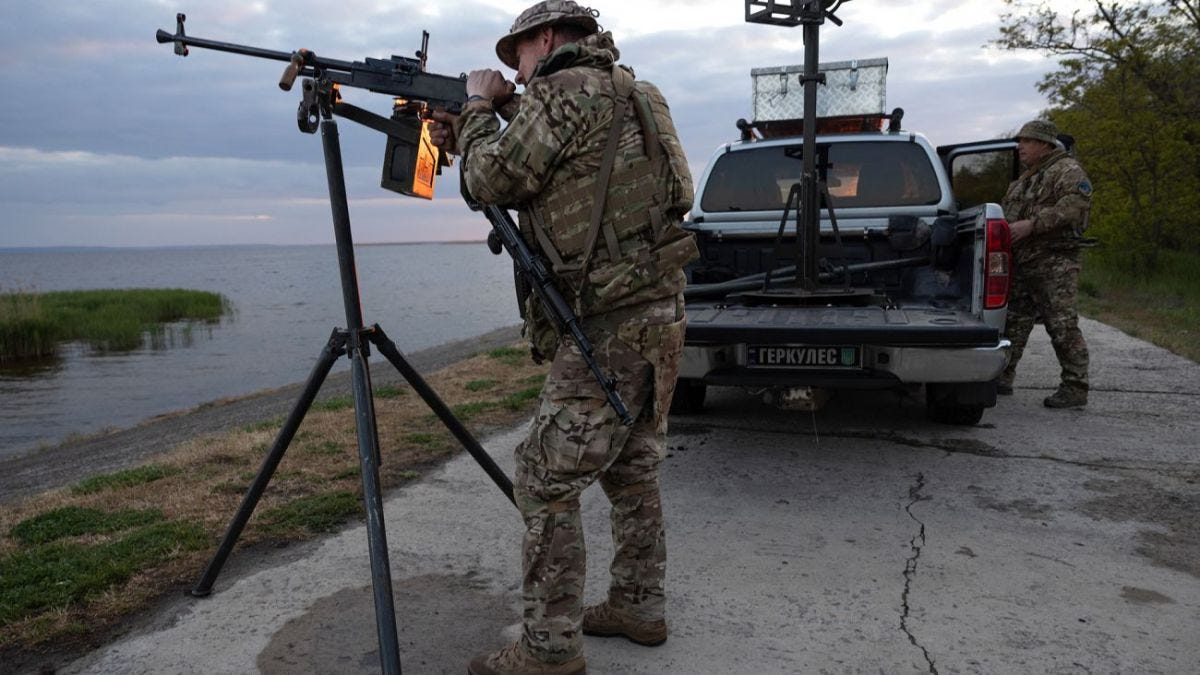Undercover in Saporischschja
Saporischschja, 10 Uhr morgens. Kein Schlaf, kein Fixer, kein Plan.
Nach 18 Stunden in der Bahn steige ich am Bahnhof von Saporischschja aus. Endstation. Erstmal das Nötigste: eine Zigarette. Dann überlegen, wie es weitergeht.
Mein Fixer hat kurzfristig abgesagt. Keine Begleitung, keine Dolmetscherin, kein Kontakt in die Außenbezirke. Ich stehe allein da. Es ist Mittag, die Luft ist schwer, die Temperaturen absurd hoch. Ich bin körperlich da, aber geistig halb weg. Der Schlaf der letzten Nächte? Zwei Stunden, wenn überhaupt.
Ich wusste, dass es hart wird. Deshalb hatte ich vorher trainiert, mit wenig Schlaf auszukommen. Trotzdem: Irgendwann spürt man’s.
Ich buche ein Hotel, obwohl ich abends schon wieder zurückfahren werde. Ich brauche einen Ort, um meine Sachen zu lassen. Und ich brauche dringend eine Dusche.
Ich winke ein Taxi heran. Der Fahrer spricht ein bisschen Englisch. „Where are you from?“ – „Germany. I’m here as a journalist and photographer.“
Er nickt. Fragt, ob ich auch Orte sehen will, an denen Raketen eingeschlagen sind. Neuaufgebaute Gebäude. Ich frage nach dem Preis: 380 Hrywnja. Unfassbar günstig. Mein ursprünglicher Fixer hätte das 25-Fache gekostet. Natürlich weiß ich, dass dieser Fahrer mich nicht raus auf’s Land bringt, keine offizielle Pressebegleitung ist. Aber es ist eine Alternative.
Er fährt mich durch die Stadt.
Ich frage ihn, ob er Familie oder Freund*innen im Krieg verloren hat. Seine Antwort ist knapp: „Too many. I think it’s like this for everyone here.“
Ich frage nicht weiter.
Wir fahren an Plakaten vorbei – Porträts von gefallenen Soldat*innen.
Er zeigt auf eines und sagt: „That’s my brother.“
Ich schlucke.
Am nächsten Spot deutet er auf ein Hotel: „Rocket hit here one month ago. Now it’s repaired.“
Ich bin beeindruckt – und gleichzeitig skeptisch. Ich kann nicht überprüfen, ob alles stimmt. Aber ich merke, dass es für ihn wichtig ist, mir das zu zeigen.
Nach weiteren Stationen sagt er, dass er jetzt nicht mehr weiterfahren kann. Er schaut mich ernst an:
„Please, don’t say my name. It’s dangerous.“
Ich frage, warum.
„It’s not legal to take photos.“
Ich nicke. Zahle ihm den vereinbarten Betrag. Kein Trinkgeld – nicht, weil ich es ihm nicht gönne, sondern weil er es ablehnt.
Ich gehe in ein Restaurant. Bestelle einen Uber, der mich in einer Stunde wieder abholen soll.
Mein überteuertes Hotel kostet in etwa so viel wie 3 ganze Stadtrundfahrten.
Aber was mir der Taxifahrer gezeigt hat, kann kein Pressebüro der Welt organisieren.
After 18 hours on the train, I step off at the station in Zaporizhzhia. Final stop.
First things first: a cigarette. Then figure out what comes next.
My fixer canceled at short notice.
No guide, no interpreter, no contacts in the outskirts. I’m on my own.
It’s midday, the air is heavy, the heat absurd.
I’m physically present but mentally half gone. Sleep over the past few nights? Maybe two hours – if that.
I knew it would be tough. That’s why I trained myself beforehand to function on little sleep.
Still – at some point, your body notices.
I book a hotel, even though I’ll be taking the night train back.
I need a place to leave my things.
And I desperately need a shower.
I wave down a taxi. The driver speaks a bit of English.
“Where are you from?” – “Germany. I’m here as a journalist and photographer.”
He nods. Asks if I want to see places hit by rockets. Reconstructed buildings.
I ask for the price: 380 hryvnias.
Unbelievably cheap.
My original fixer would’ve cost 25 times that.
Of course I know this driver won’t take me into the countryside or act as an official press guide.
But it’s an alternative.
He drives me through the city.
I ask if he’s lost family or friends in the war.
His answer is brief:
“Too many. I think it’s like this for everyone here.”
I don’t ask further.
We pass billboards – portraits of fallen soldiers.
He points to one and says:
“That’s my brother.”
I swallow hard.
At the next stop, he gestures toward a hotel:
“Rocket hit here one month ago. Now it’s repaired.”
I’m impressed – and at the same time, skeptical.
I can’t verify everything he tells me.
But I can sense how important it is for him to show me these things.
After a few more stops, he says he can’t drive any further.
He looks at me seriously:
“Please, don’t say my name. It’s dangerous.”
I ask why.
“It’s not legal to take photos.”
I nod. Pay him the agreed amount. No tip – not because I don’t want to give him one,
but because he refuses.
I walk into a restaurant.
Order an Uber to pick me up in an hour.
My overpriced hotel costs about as much as three entire city tours.
But what the taxi driver showed me – no press office in the world could have arranged.





